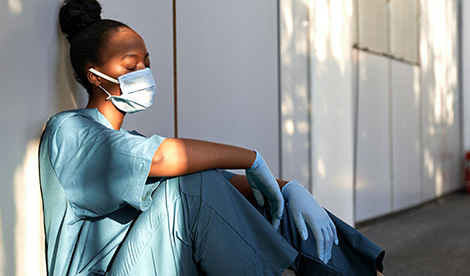

News

Caution needed when considering merits of reducing COVID-19 isolation requirements
Tuesday August 30, 2022
With National Cabinet reportedly due to consider COVID-19 isolation requirements tomorrow, the AMA (WA) urges decision makers to adopt a cautionary and conservative approach to any reduction, based on evidence.
Reducing to five days from seven will lead to more disease. This will not lessen critical short-term worker shortages, and will definitely lead to more cases of infection or re-infection.
A study published in the New England Journal of Medicine (NEJM) in July 2022 showed that half of the patients with Omicron were infective on day 5 or later.
Half of the patients with Delta were still infective on day 4 or later. Vaccination status did not affect these times.
The Commonwealth Scientific and Industrial Research Organisation (CSIRO) has released an opinion today that we can expect two waves of pandemic per year related to animal-based disease. There is also a new variant of interest in India that is emerging, and needs to be observed and assessed.
There is good evidence linking the number of COVID infections in an individual and severity of disease with risk of long COVID. A resultant increased number of long COVID cases also needs to be taken into account at both a health and economic level, given the impact this will have on productivity.
Comments attributed to AMA (WA) President Dr Mark Duncan-Smith:
“It is clear that there is a large degree of COVID fatigue but sticking our heads in the sand could make that worse.”
“Just because the USA has been using five days isolation does not mean we need to run headfirst into the same health and workforce disaster.”
“Medical evidence is not the only factor in decision making but putting people back to work at day 5 when half of them are still infective would be counter-productive at a human resources and economic level.”
“Based on a recent published study, as half of patients still are infective at five days or later with Omicron, reducing isolation from seven to five days will be counterproductive in the short and long term, and would be premature at this stage, particularly given the likelihood of a further wave later in the year.”
Reference: Duration of Shedding of Culturable Virus in SARS-CoV-2 Omicron (BA.1) Infection, The New England Journal of Medicine, 21 July 2022, 387:275-277, DOI: 10.1056/NEJMc2202092.

